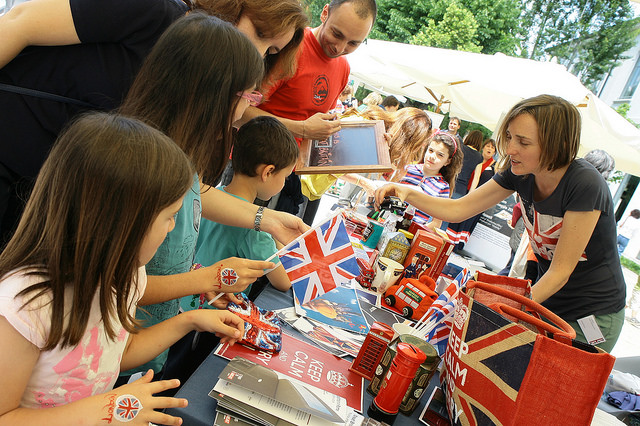18th August 2014 London, UK
Consular appointments discovery – who, what, how?

Hi, I’m Mark, a Digital Transformation Manager at the Foreign Office. I’m working on a new service for booking consular appointments, and would like to share the findings of the discovery phase.
As my colleague Phil has described previously, the FCO offers a range of services to the public, many of which are delivered at “posts” overseas – the Consulates, Embassies or High Commissions where our staff work. If you want to prepare the paperwork for getting married overseas, get a document copied and certified, or arrange an emergency travel document, the first step in most circumstances is to make an appointment at the nearest post.
So what is the experience for users today, and how can we improve it? Hot on the heels of our work to transform the Chevening scholarship forms, we’ve now completed the discovery phase for our appointments project and I’d like to share some of the findings.

Who books appointments?
Customers for consular services come from the 5 million British people living abroad permanently, the half a million who live abroad for part of the year, and the 58.5 million travellers making overseas trips. Broadly speaking, the customers can be split into two groups, driven by the service category:
- Notarial and documentary services – accounting for 70% of appointments, these services are only relevant to residents, so the customers come exclusively from the local expat community. Typical services include witnessing a signature, preparing documents or carrying out a British citizenship ceremony. Bangkok, Doha and Dubai are the busiest posts for these services.
- Emergency travel documents (ETDs) – accounting for 30% of appointments, the typical customer for an emergency travel document is someone who has lost their passport while travelling, and needs assistance at short notice. However, there are also cases where a local resident has let their passport expire and needs to travel before they can renew it, so emergency travel services will cover both travellers and expats. In the last financial year, Paris just pipped Hong Kong to the top spot for issuing the most ETDs, followed by Barcelona, Alicante and Amsterdam (draw your own conclusions!)
What about the demographics? Taking the emergency travel category as an example, over the last financial year 40% of customers were female, 60% were male and the age distribution was even and broad, with 42% of customers over 40 years old. We need to keep this range in mind when designing and testing our service.

How are appointments made today?
How customers make an appointment varies from location to location, but generally involves phoning up, sending an email, or using an online service to make the booking. All offices also handle walk-in cases where no appointment has been made in advance.
We don’t have data today covering the number of actual appointments made each year, but by reviewing fee payment data and the percentage of first line enquiries escalated to posts we estimate that there are about 80,000 appointments per year. At present, 40% of our posts offer an online booking service, which accounts for 18,500 appointments per year – in other words, the current service has a relatively low digital take-up of 23%. There’s clearly room for improvement here, with the benefits including improved choice and access for customers, and greater efficiency for consular staff – allowing them to spend more time providing assistance to the customers who need it most.
In my next post I will take a closer look at how the current online service is performing, but in the meantime if you have ever had an appointment at a post do let me know in the comments – and tell me how you found the experience of making a booking.
Follow Mark at @markbarlow

I have sent this email to my finance as I called the embassy and also sent a email with no reply as yet, as explained in this email I will fly to morocco on the 21st March I am unable to change my flights as work will not allow me to change my A/l as I work in a hospital and is my only allowed time off. We was both unaware of a appointment being needed as was informed we could arrive at the embassy at 8am for a appointment , please sir/madam I ask you to please understand our situation and allow us to have a emergency appointment to allow us to do the papers we need to marry. Please I ask for your understanding and help on this matter. (mobile number removed)
Yours sincerely
Customers ?! You sound like Network SouthEast (not a good thing).